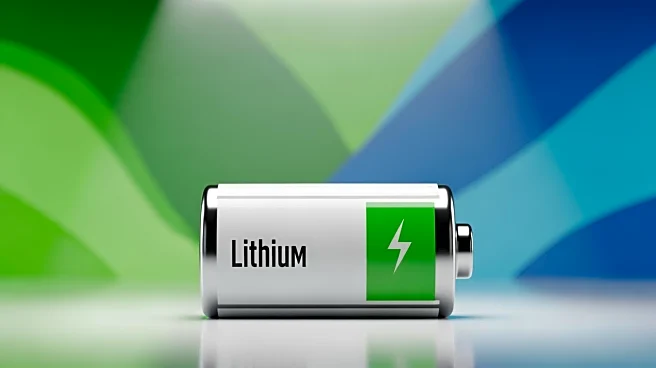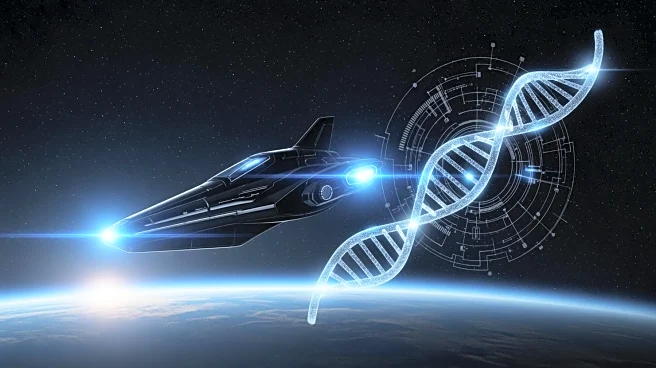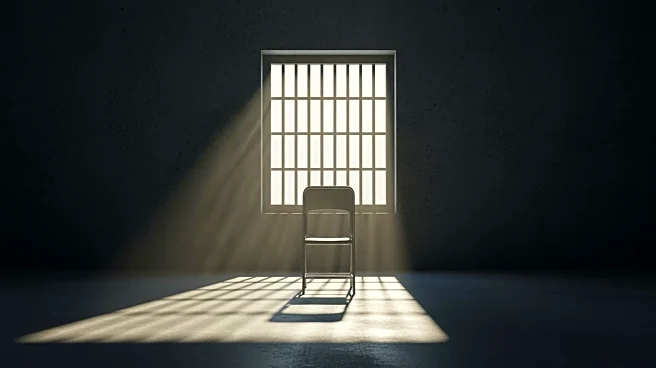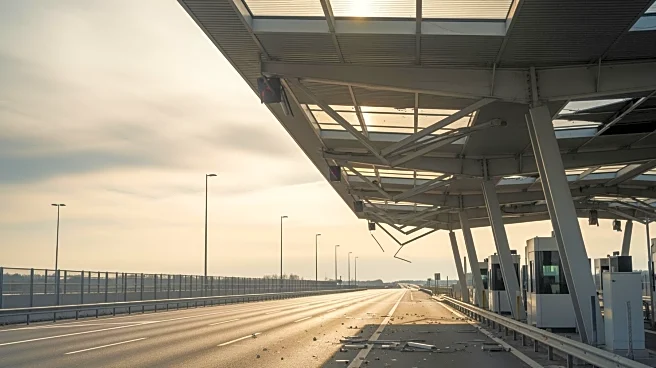What's Happening?
The European Commission has announced funding for a Portuguese project to build a lithium battery factory, as part of a broader initiative to reduce carbon dioxide emissions. The project, known as NEXTGEN CAM, is among 61 selected for funding, with a total
of €2.9 billion allocated to zero-impact technology projects. NEXTGEN CAM focuses on producing lithium-nickel-manganese oxide cathode material, crucial for electric vehicles and energy storage. This initiative is part of the EU's efforts to strengthen its technological leadership and accelerate decarbonization solutions.
Why It's Important?
The funding for the lithium battery factory is significant as it supports the EU's goal of achieving climate neutrality by 2050. By investing in clean manufacturing and energy storage technologies, the EU aims to reduce greenhouse gas emissions significantly. The project is expected to cut around 221 million tonnes of CO2 equivalent in its first decade, comparable to the annual emissions of 9.9 million European cars. This move not only advances environmental goals but also enhances Europe's competitiveness in the global battery market.
What's Next?
The funding for each selected project, including NEXTGEN CAM, will be finalized in the first half of 2026. The projects will cover various sectors, including renewable energy, energy storage, and clean technology manufacturing. As these projects progress, they are expected to contribute to the EU's broader strategy of reducing emissions and promoting sustainable industrial practices.















